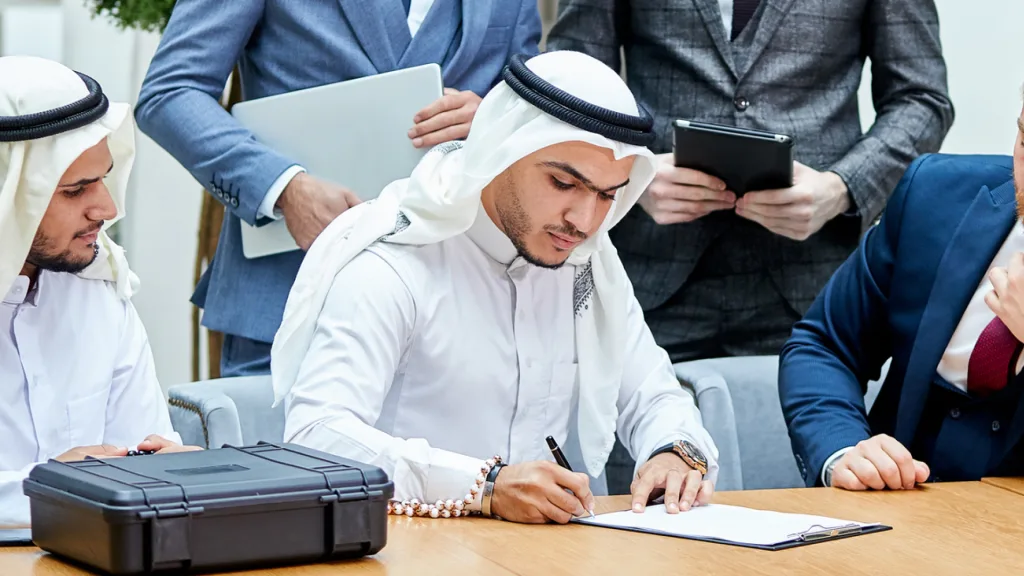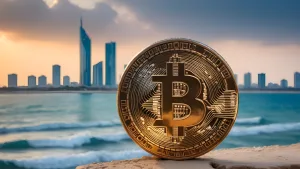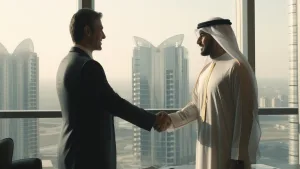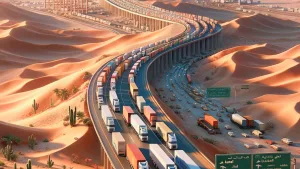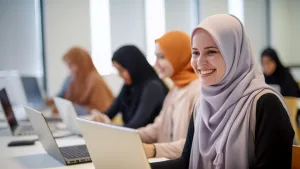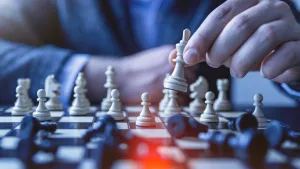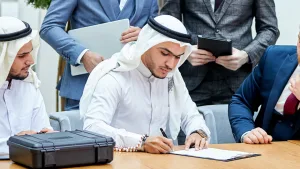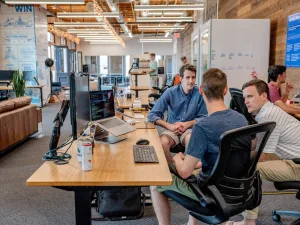Given the complementarity of long-term economic interests between Israel and the United Arab Emirates and the already deep-rooted relations, it is likely that ties will continue to grow, especially in the economic field, after the Israel and UAE Normalization.
In August 2020, the United States announced the Israel and UAE Normalization, which establishes formal relations between Israel and the United Arab Emirates. The text of the agreement between Israel and the United Arab Emirates specifies the normalization of relations in several areas in which the two countries seek cooperation, including vital sectors such as innovation, trade, health care, science, technology, and tourism.
The economic motives of Israel and the UAE were the main focus of this agreement. Both countries view cooperation to support their domestic industries in the short term and achieve long-term sustainability.
Israel and UAE Normalization will be judged by the ability of Israel and the UAE to maintain economic cooperation. The relationship appears to be well-positioned for continued growth given the complementarity of long-term economic interests between the two countries and the already rooted ties.
With a robust startup ecosystem, Israel has many companies seeking to develop and market their products. As such, the strength of ties with the UAE is an opportunity for Israeli companies to determine the momentum and depth of the economic relations.
While opening relations with the UAE allow Israeli companies to sell their goods to Emirati buyers, it also allows the Emiratis to invest significant investments in Israeli startups. There has been a considerable movement in terms of investments. The Abu Dhabi Investment Office set up a branch in Tel Aviv and announced a $ 10 billion fund to invest in Israel in various sectors.
Israel and UAE Normalization
Israeli companies can also benefit from access to the solid infrastructure for transport goods in the Emirates and open up markets in the Middle East, North Africa, and Asia. At the same time, the geographical location of the United Arab Emirates and the level of trade with the Asian markets provide enormous opportunities for Israel. The UAE accounts for approximately 1.5% of global trade and 2.4% of international tanker trade.
The UAE can help Israeli companies market their goods to countries that do not have formal relations with Israel. At the same time, Israel can take advantage of the goods transportation infrastructure in the United Arab Emirates to simplify and strengthen its existing trade relations with Asian countries. This includes India, which is a significant importer of Israeli and Emirati goods. According to some estimates, the triangular trade could expand to $ 110 billion by 2030.
The diamond industry makes up a substantial portion of Israeli and Emirati exports. According to some economic statistics, Israel exported $ 11.2 billion worth of diamonds, and the UAE exported $ 9 billion in 2019. India was the leading destination for those exports to both countries, with India importing a quarter of the diamonds from the two countries in 2019.
In recognition of the potential of this partnership, Israel and the UAE signed an agreement to work together in the diamond industry. In September 2020, the trilateral diamond trade with India was highlighted as an “opportunity” by the head of the Dubai Multi Commodities Center, the UAE Free Trade Zone.
Israel is also looking to privatize its ports. The UAE’s experience in developing ports and infrastructure networks could bolster this initiative. However, it remains to be seen to what extent Dubai’s expertise in developing its port system will usefully move from the ground up to the context of privatization. Dubai-based DP World – one of the world’s largest marine terminal operators – has already made a joint bid with Israeli shipyards in October 2020 to privatize Haifa Port.
Economic interests
Simultaneously, the United Arab Emirates has sought to promote entrepreneurship and small and medium-sized enterprise cultivation. This was evident in the UAE’s creation of the minister of State for Entrepreneurship and Small and Medium Enterprises in 2020. Israel can provide support here given its robust startup ecosystem and sharing best practices with its new Gulf partner.
For example, in October 2020, the Israeli venture capital firm OurCrowd signed a partnership agreement with Phoenix’s Emirati business development company. The agreement seeks to link Israeli companies with Emirati investors while giving Emirati companies and business people a platform to meet Israeli entrepreneurs and investors.
The UAE is also striving to become more self-sustainable and diversify its economy, focusing on technology acquisition and knowledge transfer. The UAE Vision 2021 focuses on healthcare, education, and environmental infrastructure. Given Israel’s strength in water technology, agriculture, and renewable energy, there is ample opportunity for cooperation in these key challenge areas identified by the UAE.
The UAE also emphasizes developing local knowledge by increasing educational opportunities and building a local R&D sector. Collaboration with leading Israeli companies and educational institutions supports this effort. For example, the Abu Dhabi-based Mohammed Bin Zayed University for Artificial Intelligence and the Israeli Weizmann Institute of Science created the “Joint Program for Artificial Intelligence Research.”
Israel and the Emirates
Over the past eight months, Israel and the United Arab Emirates have also worked to ensure that, along with normal interstate relations and strong economic ties, there will be an opportunity for tourism, cultural exchanges, and other widespread efforts. Government officials in Israel and the United Arab Emirates have stated that they wish to establish a “warm peace.” Now, Israelis can travel to Abu Dhabi and Dubai, and Emiratis can visit Jerusalem and Tel Aviv. Nearly 130,000 Israeli tourists have already traveled to the United Arab Emirates.
While Israel has imposed strict restrictions related to the Coronavirus on foreign travelers, it is considering establishing a quarantine-free travel corridor with the UAE for those who have been vaccinated. In 2021, the Israeli Ministry of Tourism expects 100,000 tourists from the United Arab Emirates, depending on the state of the health crisis. The personal relationships forged through tourism and cultural exchanges can ensure that Israelis and Emiratis experience the benefits of normalizing relations.
Israel and UAE Normalization – a sustainable economic partnership
Based on their strategic goals and their respective strengths, the United Arab Emirates and Israel are particularly suitable for sustainable economic cooperation. These synergies already provide significant opportunities for countries, as evidenced by the number of agreements and partnerships already established between them and the rapid pace of implementation. From travel and tourism to planned investment and joint participation in multilateral business forums, these tangible developments support diplomatic openness by showing that relationships can yield immediate and visible economic and social benefits.
Since Israel and UAE Normalization took place, private companies have benefited from accessing new markets. Between September 2020 and the end of January, there was at least $ 272 million in trade between Israel and Dubai. Dubai’s imports from Israeli companies were estimated at 88.5 million dollars and exports about 165.2 million dollars. Also, there was approximately $ 26.9 million in the transit trade.
The agreements established the framework that allowed the two countries to sign nearly 86 bilateral agreements or partnerships. These agreements include about 20 governmental agreements, about 53 agreements with the private sector, and seven universities and research centers. These agreements extended to essential industries such as agricultural technology, green energy, and finance. They also include various contracts, such as between news organizations or the exchange of police representatives. The majority of deals have focused on innovation and trade, reflecting how each government aims to collaborate to develop and expand access to new technologies.
Israel and UAE Normalization provides substantial economic opportunities for both countries. However, they need to be aware of potential disagreements and navigate avenues to confront controversies without causing harm to the strength of relationships. A recent example of tensions is the UAE’s response to Prime Minister Benjamin Netanyahu’s use of the accords to bolster his election campaign. Relations between the two countries are not immune to the differences caused by the domestic political dynamics.
Since the declaration of the normalization agreement between Israel and the United Arab Emirates, the two countries have taken numerous steps to facilitate economic cooperation and development to lay the foundation for deeper economic relations between the two countries. In September 2020, Eli Cohen, Israel’s intelligence minister, estimated that trade between Israel and the UAE could reach nearly $ 4 billion annually in the next three to five years.
Broad partnerships and joint investments in various sectors indicate the ways – if not guarantee – in which Israel and the UAE can achieve this ambitious level of trade in such a stressful period and prepare to meet their needs in the short and long term. Objectives. As Israel and the UAE begin to recover from the pandemic, the development of their relationship is almost sure to provide more opportunities for cooperation as they seek to revitalize their economies for a sustainable and prosperous future.
